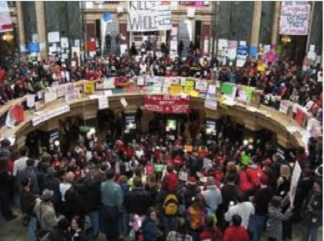Who We Are
 The International Commission for Labor Rights, ICLR, is a 501(c)(3) non-profit that is based in New York, and coordinates the pro bono work of a global network of lawyers and labor experts committed to advancing workers' rights through legal research, advocacy, cross-border collaboration, and the cutting-edge use of international and domestic legal mechanisms. ICLR's legal network also responds to urgent appeals for independent reporting on gross labor rights violations.
The International Commission for Labor Rights, ICLR, is a 501(c)(3) non-profit that is based in New York, and coordinates the pro bono work of a global network of lawyers and labor experts committed to advancing workers' rights through legal research, advocacy, cross-border collaboration, and the cutting-edge use of international and domestic legal mechanisms. ICLR's legal network also responds to urgent appeals for independent reporting on gross labor rights violations.
The network was founded in 2001 at the request of more than 50 national trade unions and global federations, and the coordinating secretariat in New York was set up in 2005. The network aspires to be a resource for trade unions and workers around the world.
ICLR's work is led by its Board of Directors:
Jeanne Mirer
President
Ashwini Sukthankar
Secretary/Treasurer
Earl V. Brown Jr.
Labor & Employment Law Counsel
The Solidarity Center-
AFL-CIO
Angela B. Cornell
Clinical Professor of Law
Cornell Law School
Benjamin Davis
Director of International Affairs
United Steelworkers
Judith A. Scott
General Counsel
Service Employees International Union
Frances C. Schreiberg
Of counsel
Kazan McClain Lyons Greenwood & Harley
Jeffrey Vogt
Legal Advisor, Dept. of Human & Trade Union Rights,
International Trade Union Confederation
*Organizations for Identification purposes only
Our Principles
We believe that all working people have certain core rights, which we are committed to defending:
to form and join unions, and to bargain collectively for better conditions at work
to earn enough to support themselves and their families, so that children do not have to work
to work freely, without force or coercion
to be free from discrimination in the workplace
How can a lawyers' network support workers' rights?
• Unions, grassroots workers' organizations and the lawyers who support them are all too aware that basic guarantees for workers are in a state of crisis, worldwide:
• Constantly shifting sites of production and employment relationships, placing jobs in perpetual uncertainty
• The predominance of precarious or insecure, non-permanent work
• Labor law “reforms” and reduced enforcement of existing laws
• The erosion of social security
• Weakened protections for the right to form and join unions
• The continuing epidemic of forced labor